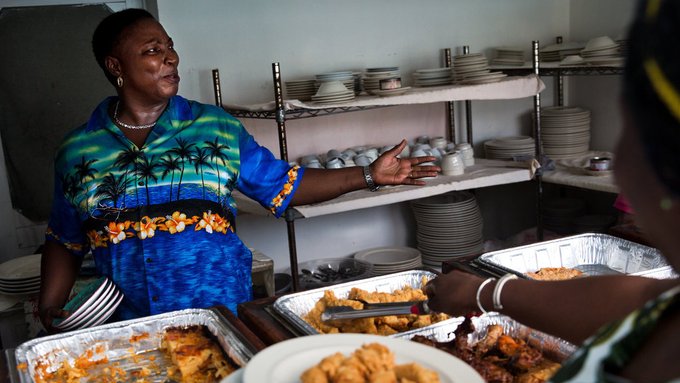Fyre Festival Restaurant Owner Gets a Hand From Private Initiative
Scheduled to take place in April and May 2017, the Fyre Festival became a cautionary tale about events hyped by social media influencers. But as it turned out, it also became a great example of how civil society can use technology for good.
As paying customers arrived on the Bahamian island of Great Exuma to find tents and pre-packaged sandwiches instead of the luxury accommodations and meals they were promised, the festival was indefinitely postponed. The fiasco eventually resulted in at least eight lawsuits, which claimed that organizers Billy McFarland, the founder of Fyre Media, and rapper Ja Rule duped ticket buyers.
But MaryAnne Rolle, one of the many who were defrauded by the festival’s organizers, was not a ticket buyer who invested a couple of thousands to go on a fun trip. According to her interview with ABC News, she spent more than $100,000 preparing food for attendees of the Fyre Festival. And in the end, she was never paid.
“It was 1,000 for lunch. 1,200 sometimes for supper. So we were basically running 2,000 meals per day,” she told reporters.
Featured on the Netflix documentary Fyre: The Greatest Party That Never Happened, Rolle claims she dipped into her own savings to cover her staff’s costs. But because organizers never paid her for the services, she’s now struggling with bad credit and no savings to her name. Thankfully, the internet did not disappoint.
After a GoFundMe page was set up, online users quickly flooded in to help her, allowing her to raise over $177,000. The original goal, $123,000, was raised in just eight days.
In her plea, she admitted she feels embarrassed by this whole ordeal.
“Breakfast, lunch, and dinner were all prepared and delivered by Exuma Point to Coco Plum Beach and Roker’s Point where the main events were scheduled to take place,” she said, adding that “organizers were also checked into all the rooms at Exuma Point Resort.” Unfortunately, the resort and restaurant owners reportedly never saw a penny.
“As I make this plea it’s hard to believe and embarrassing to admit that I was not paid,” she explained. “I was left in a big hole! My life was changed forever, and my credit was ruined by Fyre Fest. My only resource today is to appeal for help.”
People heard her and acted — fast.
With mainly small donations, the internet successfully rallied behind a business owner whose life was completely devastated by the actions of the event organizers. This proves that private initiative, not government interference, is what makes the difference in the lives of those in need.
Government “Charity” Is Everything But
Proponents of taxpayer-backed charity claim that if it wasn’t for government agencies providing aid to those in need, private institutions, companies, religious groups, and individuals would never step up. To them, America would be in utter chaos if it wasn’t for government’s bloated and incompetent agencies coming to the rescue.
But the reality is that whenever we see cases of major disasters striking the U.S., we consistently see private, not taxpayer-backed, groups stepping up to help immediately. In the meantime, government agencies end up doing more harm than good, as many even shut down when they should be running aid or simply fail to help because of bureaucratic incentives or utter incompetence.
In other instances, such as the events that ruined Rolle’s savings and credit, we see individuals donating what they can to help precisely because they feel that if they don’t get involved, injustices won’t be corrected. Much like neighbors helping each other or churches stepping in to provide shelter when immigrants are afraid for their safety, we all act when needed, and the government has absolutely nothing to do with it.
But because taxpayers pay so much to the government, it’s almost impossible to ignore how many more people could be helped by private charities and individuals if people kept what they earned. After all, if the average American didn’t have to give about 24 percent percent of their income to the government, they would have much more to spare for good causes.
So if people are truly concerned with helping those in need when the time comes, advocating less, not more, government involvement would actually give us all more opportunities to help each other better and more efficiently.










